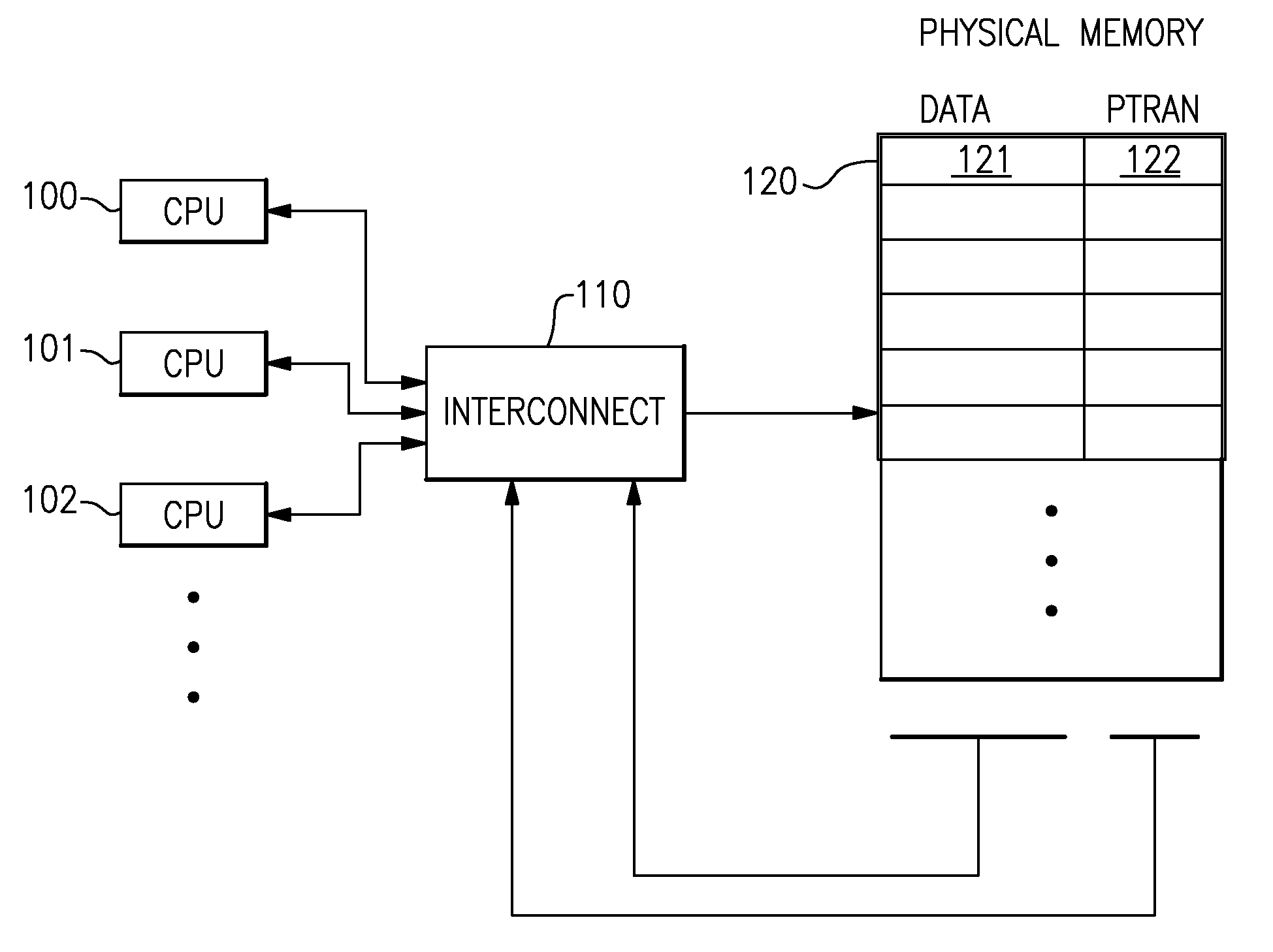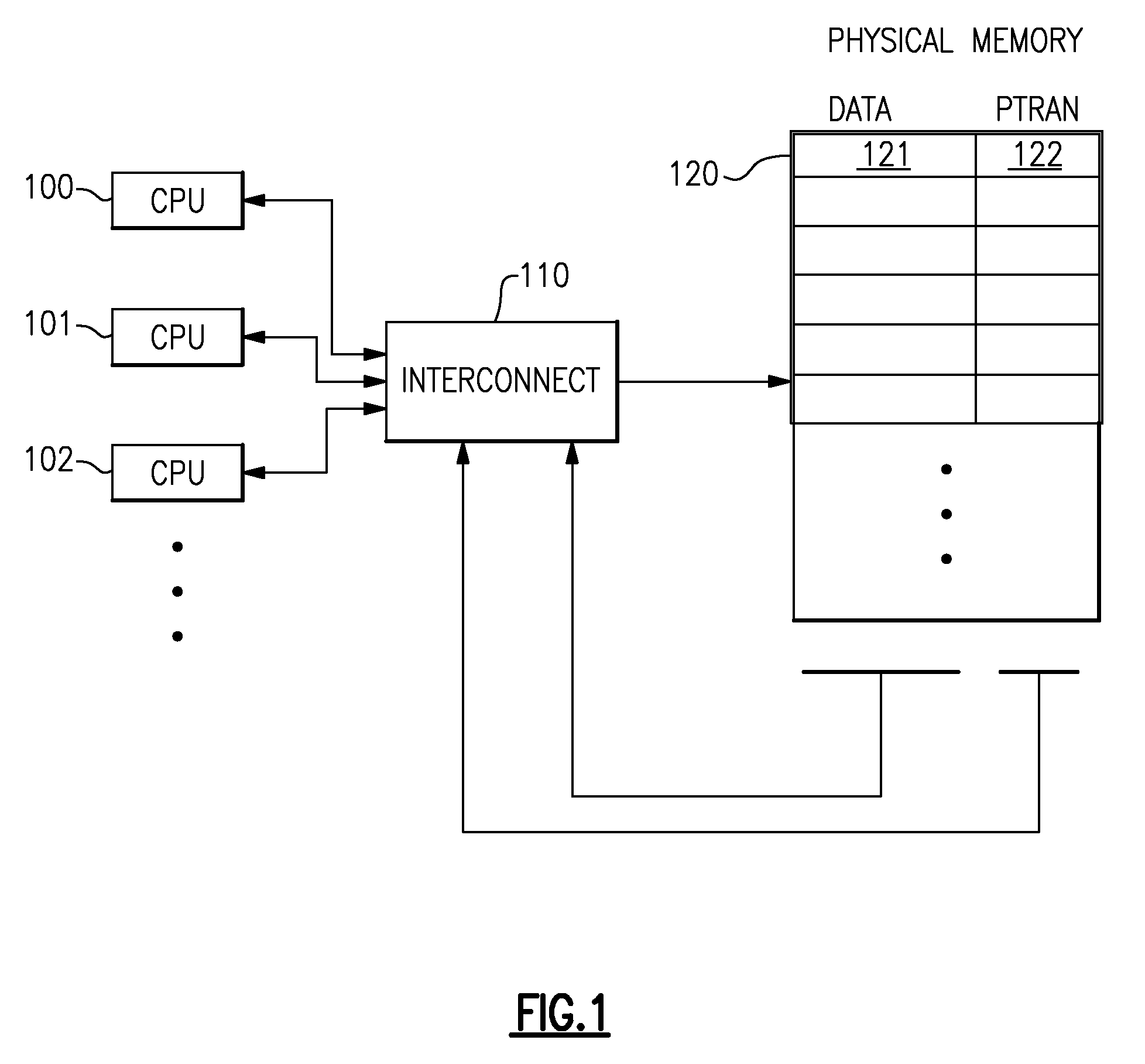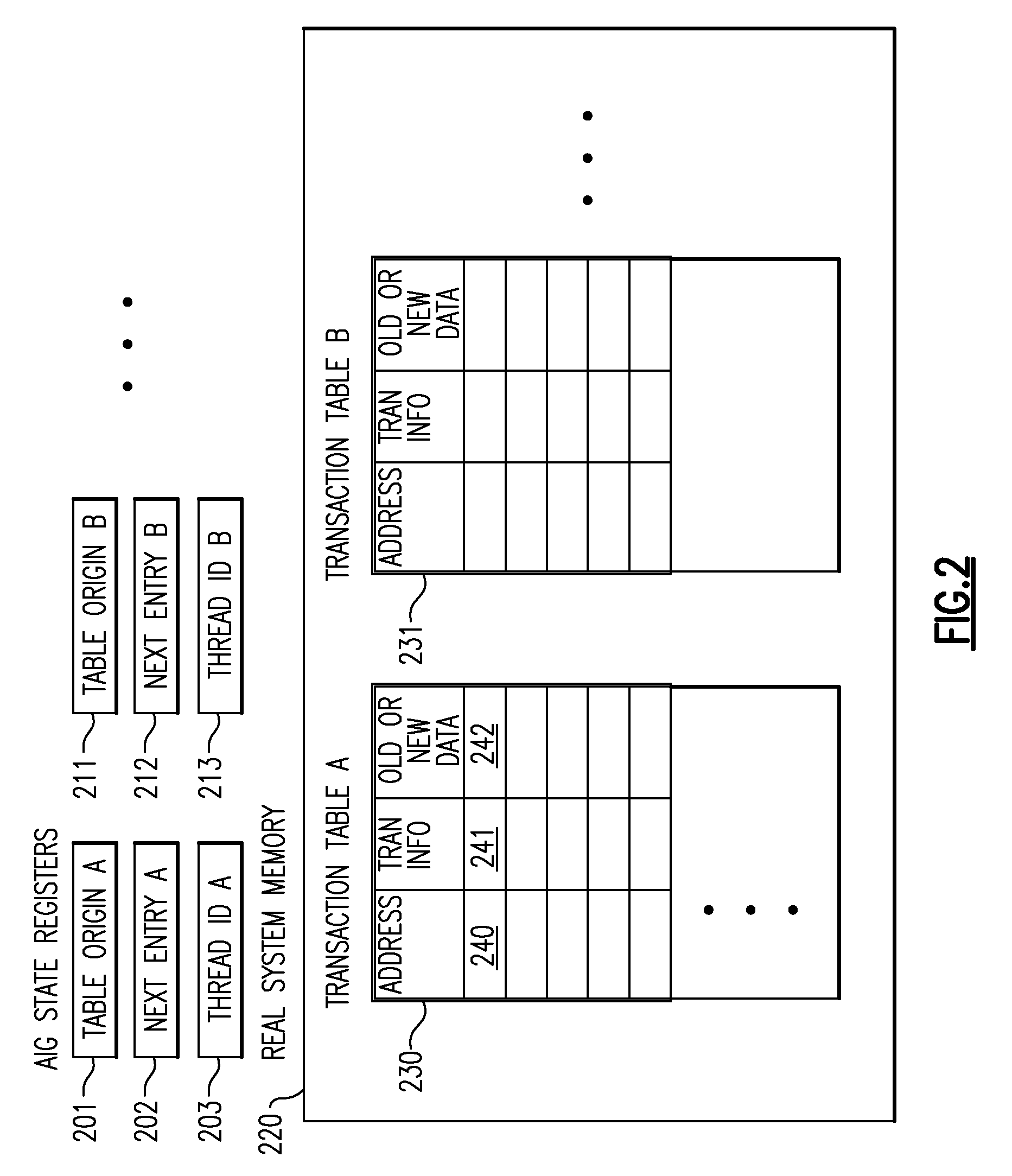Transactional Memory System with Fast Processing of Common Conflicts
a memory system and common conflict technology, applied in the field of multi-processor and multi-threaded computing systems, can solve the problems of frequent over-indication and incur very large software path length penalties, and achieve the effect of fast execution of nested transactions
- Summary
- Abstract
- Description
- Claims
- Application Information
AI Technical Summary
Benefits of technology
Problems solved by technology
Method used
Image
Examples
Embodiment Construction
[0039]in FIG. 1 there is a computing system illustrating an embodiment of our invention which has one or more microprocessors (100,101,102) coupled to a physical memory array (120) via an interconnection element (110). The physical memory array stores transaction data (121) and “private to transaction” (PTRAN) tags (122) which are associated with every increment of real system memory. The interconnection element (110) can be implemented as a shared bus or crossbar switch. The invention applies to systems which use any other scheme of interconnecting physical memory to a multiprocessor system which may be implemented in one or more chips. The memory could be broken down into smaller portions and distributed across private connections to each of the CPU chips as done for the IBM Systems using the Power4 microprocessor or for the AMD Opteron based servers. The microprocessors and memory controllers may be located together on a single silicon chip or they may be spread across multiple c...
PUM
 Login to View More
Login to View More Abstract
Description
Claims
Application Information
 Login to View More
Login to View More - R&D
- Intellectual Property
- Life Sciences
- Materials
- Tech Scout
- Unparalleled Data Quality
- Higher Quality Content
- 60% Fewer Hallucinations
Browse by: Latest US Patents, China's latest patents, Technical Efficacy Thesaurus, Application Domain, Technology Topic, Popular Technical Reports.
© 2025 PatSnap. All rights reserved.Legal|Privacy policy|Modern Slavery Act Transparency Statement|Sitemap|About US| Contact US: help@patsnap.com



